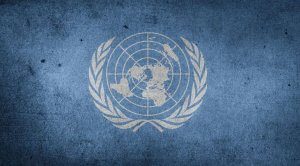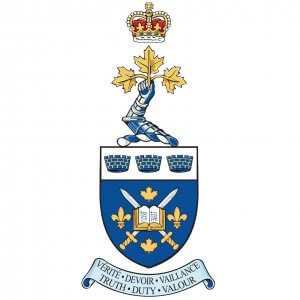 The United Nations Security Council has been extraordinarily inept in responding to the COVID-19 pandemic crisis, writes Bruno Charbonneau.
The United Nations Security Council has been extraordinarily inept in responding to the COVID-19 pandemic crisis, writes Bruno Charbonneau.
By Bruno Charbonneau, September 10, 2020
The United Nations Security Council (UNSC) has been extraordinarily inept in responding to the COVID-19 pandemic crisis. This is worrying given its relevance as the world’s authority in the use of force and matters of war and peace. The UNSC is the only UN body that has the power to take legally binding decisions on member states and, under Chapter VII of the UN Charter, to enforce these decisions through sanctions or the use of military force. This makes it the UN’s most powerful organ and forum as well as a strong symbol and site for international cooperation. And yet it has remained remarkably useless to deal with the impact of the pandemic on international peace and security, and deeply divided in addressing this issue.
It is for a lack of trying. On 23 March 2020, UN Secretary-General (UNSG) Antonio Guterres called for an “immediate global ceasefire” in order “to put armed conflict on lockdown and focus together on the true fight of our lives.” The assumption is that wars allow diseases to spread while reducing local and international abilities to deal with their impacts. A global health pandemic and the responses required to contain it are also likely to exacerbate pre-existing conflict dynamics around the world. So any opportunity to reduce conflicts and promote peace processes during an unprecedented international health crisis should be promoted wholeheartedly. Through this call for a global ceasefire, Guterres showed real leadership.
Yet, the UNSC faltered. It ended up passing Resolution 2532 on July 1st, but by then the momentum had been lost and the practical effects on conflict zones has been nil. Why has the UNSC failed to rapidly and strongly support Guterres’s initiative to address the COVID-19 crisis? And what does this failure tell us about the UNSC in particular and the UN system in general?
Prelude to Failure
First things first. The UNSC has been wrought with fractures, tensions and conflicting priorities between its five permanent veto members (the P5) since its creation in 1945, with arguably a hiatus in the 1990s. But these have been exacerbated by recent economic and geopolitical power shifts that have produced stresses on multilateral organizations and practices. The rise of right-wing nationalist movements and governments have further challenged the legitimacy of a multilateral world order. And the relevance of the UNSC has been denigrated by both the US invasion of Iraq in 2003 without a UNSC resolution and the UNSC response to the Arab revolutions, Libya, Syria, Crimea, and Ukraine.
And yet these tensions have not inhibited the UNSC’s growing attention to the links between health and international security. In 2000, with Resolution 1308 on HIV/AIDS, the UNSC acknowledged that health crises could threaten international peace and security. And in 2014, Resolution 2177 recognized that the Ebola outbreak in West Africa threatened regional stability. The UN response to the 2014 Ebola crisis, supported by the Obama administration, provides a stark contrast to the case of COVID-19. While the response was far from perfect, the point is that global medical emergencies such as COVID-19 are not a strategic surprise.
The UNSC COVID-19 Test
The working assumption of the World Health Organization (WHO) and associated international health cooperation mechanisms, which have always prioritized the interests of states from the Global North, is that disease contagion management and responses are more likely required in the Global South. The WHO has therefore always regarded the Global South as being the principal beneficiaries of its health cooperation activities.
In terms of COVID-19, this assumption was wrong because the pandemic has struck harder and faster in the Global North (at least for now). However, we do not at this point know enough about the trajectories of the pandemic to understand how it will impact worldwide, and particularly in conflict-affected zones. The pandemic is likely to further expose the vulnerabilities and limitations that lie at the nexus of war, geopolitics, and health.
At the UNSC, global health cooperation could have begun with strong support for the UN Secretary-General’s call for a global ceasefire. France and Tunisia, in particular, worked hard to make it happen. Ultimately, it took over three months to come up with Resolution 2532. The Resolution’s call for a global ceasefire is a historical first, but it has already been forgotten and the call went unanswered.
Instead, the United States and Russia were more concerned about the ramifications of a global ceasefire on their respective operations in Iraq, Afghanistan, and Syria. A further key obstacle was the petty blame game between the United States and Chinese governments. While China has worked hard to deflect international criticism of its initial botched handling of the outbreak of COVID-19, it has consistently failed to offer a compelling alternative to US global leadership, instead preferring to exploit the situation for its own political gains. However, under the presidency of Donald Trump, the United States has largely abdicated its global role, preferring to scapegoat China and the WHO while ignoring the necessity of global cooperation around COVID-19. So far, both the United States and China have succeeded only in demonstrating their inability or unwillingness to lead the UN system.
What this diplomatic debacle over COVID-19 has exposed is the structural problems that arise because of the centrality of the UNSC within the UN system. The UNSC’s failure to support the Secretary-General’s call for a global ceasefire, and (perhaps more fundamentally) to coordinate a global response to the pandemic highlights two structural inequalities within the UN system.
The first is the relationship between the UNSC, the UN Secretary-General and the UN General Assembly. While in recent years the focus has been on reforming the UNSC (in terms of its membership and veto power), under Charter rule the UN Secretary-General and General Assembly have the authority to call upon the UNSC to fulfill its primary responsibility. The UN Secretary-General’s authority under Article 99 could be used more often to bring matters to the attention of the UNSC, while the UN General Assembly could rely on its United for Peace Resolution of 1950 to overcome a UNSC veto. Both options, while not without challenges and political risk, could bring greater compliance with the principles and purposes of the UN system, and force the UNSC to act.
While such options might seem unlikely in the short term, they might become unavoidable in light of the economic impacts of the coronavirus. As the pandemic continues to spread, notably in the Global South, political struggles over global health cooperation, distribution of medical resources and expertise, economic rescue packages and so on, will exacerbate patterns of global inequality, potentially causing instability and armed conflict. And when the global economy goes into depression, the structural inequalities inherent in systems of development aid, humanitarian assistance, and global political economy will be increasingly challenged by the Global South. This will be the biggest test for the UN system and for the relevance and legitimacy of the UNSC.
Conclusion
The failure of the UNSC to respond to COVID-19 is also illustrative of a fundamental shift: the erosion of US clout in the Council. This is a trend that started before the Trump administration, but the latter’s approach to the UNSC has been confrontational, deployed for electoral gains, and disastrous for international cooperation. It is tempting to conclude that much rests on the result of the US November election. A change in leadership at the White House would certainly transform the political dynamics of the UNSC. Yet, a new US administration will offer no solution to the multiple crises of multilateralism.
The COVID-19 quarrels at the UNSC underline the limits of a UN system that is built upon, and reproduces, global structural inequalities. In this context, is it too radical to consider the possibility that the UNGA could again become a site to challenge such structural inequalities as it did in 1974 with its Declaration on the Establishment of a New International Economic Order? In light of the failures of the UNSC to deal with COVID-19, in response to the decline of US global leadership, and in the context of the bigger challenge that climate change represents, highlighting and debating UNSC reforms does not go far enough.
It is far from clear if the UN system can challenge and change the global structures on which it was built, that produce and reproduce patterns of violence and injustice. But one thing is clear: the UNSC is not where one will find the seeds of change. Advocating a mere tinkering of the international structures from which our major problems arise is insufficient. We need to be more radical in our thoughts and actions.
Bruno Charbonneau is Associate Professor of International Studies and Director of the Centre for Security and Crisis Governance at the Royal Military College Saint-Jean, Quebec.
 This contribution is part of a 14-articles report on the global politics of the COVID-19 crisis. The report was published by the new Centre for Security and Crisis Governance (CRITIC). Part of the Royal Military College Saint-Jean, CRITIC’s mission is to produce state-of-the-art and policy relevant research pertinent to global security policy and crisis management. It will be officially inaugurated in September 2020.
This contribution is part of a 14-articles report on the global politics of the COVID-19 crisis. The report was published by the new Centre for Security and Crisis Governance (CRITIC). Part of the Royal Military College Saint-Jean, CRITIC’s mission is to produce state-of-the-art and policy relevant research pertinent to global security policy and crisis management. It will be officially inaugurated in September 2020.
For more information about CRITIC, please contact director Bruno Charbonneau at bruno.charbonneau@cmrsj-rmcsj.ca.




